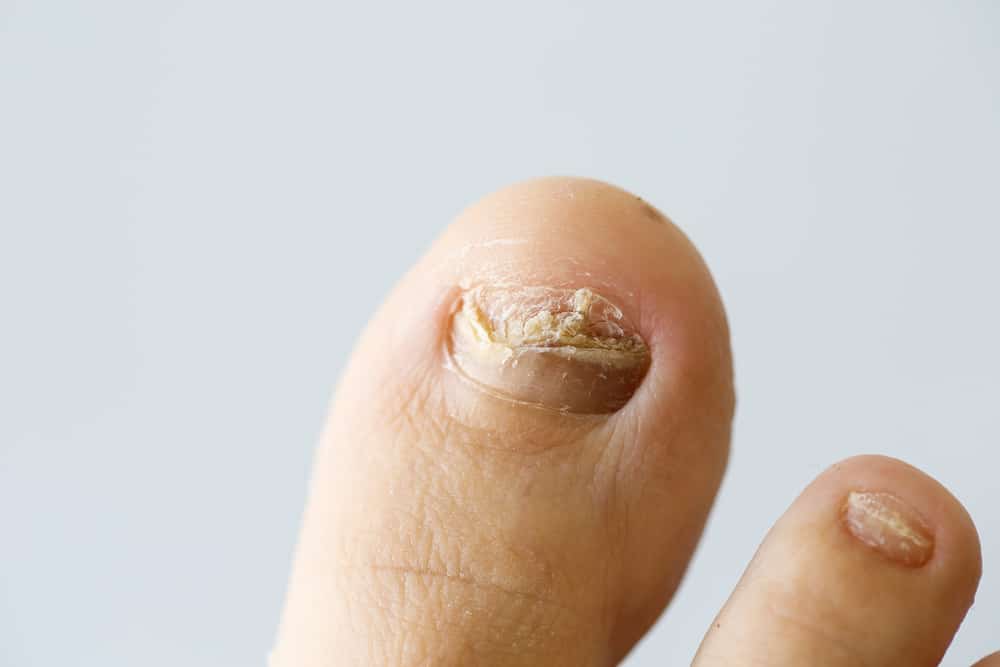If you’ve ever had nail fungus, you know how frustrating it can be. Not only can it be unsightly, but it can also cause discomfort and pain. Proximal Subungual Onychomycosis is a type of nail fungus that starts at the base of the nail and can be especially difficult to treat. However, the good news is that it’s preventable. This article will provide tips for preventing Proximal Subungual Onychomycosis and living a healthy, fungus-free life.
What is Proximal Subungual Onychomycosis?
Proximal Subungual Onychomycosis is a type of nail fungus that starts at the base of the nail and can spread to the rest of the nail. A variety of fungi, including dermatophytes, yeasts, and molds, cause it. The condition is more common in older adults and people with weakened immune systems, but it can affect anyone.
Nail fungus symptoms include thickened nails, discoloration, crumbling edges, and a foul odor. In severe cases, the nail may become detached from the nail bed.
Tips for Preventing Proximal Subungual Onychomycosis
Proper Foot and Nail Hygiene
One of the most effective ways to prevent nail fungus is to maintain proper foot and nail hygiene. Here are some tips to keep your nails healthy:
- Trim your nails regularly and straight across. Avoid cutting them too short or rounding the edges, as this can make them more susceptible to fungus.
- Keep your nails clean and dry. After showering or swimming, dry your feet and nails thoroughly. Avoid wearing damp socks or shoes, as this can create a breeding ground for fungus.
- Wear clean socks and change them frequently. Ideally, you should wear socks made of breathable materials, such as cotton or wool, which help keep your feet dry.
- Don’t go barefoot in public areas like locker rooms or pools. Wear shower shoes or sandals to protect your feet from fungus.
Avoiding High-Risk Environments
Nail fungus thrives in warm, damp environments, so it’s important to avoid high-risk environments that can increase your chances of developing an infection. Here are some tips to protect your feet in high-risk environments:
- Wear protective footwear, such as closed-toe shoes, when in public areas.
- Avoid sharing personal items, such as nail clippers, with others.
- Don’t apply nail polish to infected nails, which can trap moisture and worsen the infection.
- Use antifungal sprays or powders in your shoes to help prevent infection.
Wearing the Right Shoes
The shoes you wear can greatly impact the health of your feet and nails. Here are some tips for choosing the right shoes:
- Choose shoes made of breathable materials, such as leather or canvas, which allow your feet to breathe.
- Avoid shoes made of synthetic materials, as they can trap moisture and increase your risk of infection.
- Ensure your shoes fit properly, and don’t pinch or rub your feet.
- Avoid wearing high-heeled shoes for extended periods, as this can increase pressure on your toenails and make them more susceptible to infection.
Maintaining a Healthy Lifestyle
Living a healthy lifestyle can help prevent nail fungus. Here are some tips to keep your body and immune system healthy:
- Follow a healthy diet that’s rich in vitamins and minerals. Foods such as fruits, vegetables, and lean protein can help boost your immune system and keep your nails healthy.
- Exercise regularly to improve circulation and keep your feet healthy.
- Avoid smoking and excessive alcohol consumption, as both can weaken your immune system and increase your risk of infection.
Treatment Options for Proximal Subungual Onychomycosis
If you do develop nail fungus, various treatment options are available. Here are some common treatment options for Proximal Subungual Onychomycosis:
- Antifungal medications: These medications are available in topical and oral forms and kill the fungus. They may take several weeks or months to work, depending on the severity of the infection.
- Laser therapy: Involves using a laser to heat and kill the fungus.
- Nail removal: In severe cases, the infected nail may need to be surgically removed to allow a new, healthy nail to grow.
- Natural remedies: Some natural remedies, such as tea tree oil, vinegar, and oregano oil, have antifungal properties and may help treat mild cases of nail fungus.
Conclusion
Proximal Subungual Onychomycosis can be a frustrating and uncomfortable condition, but it’s preventable. Following these tips for preventing nail fungus can reduce your risk of developing an infection and help you enjoy healthy, beautiful nails. If you do develop nail fungus, early detection, and treatment are key to successful treatment. With proper care and treatment, you can get back to living your life without the discomfort and embarrassment of nail fungus.

